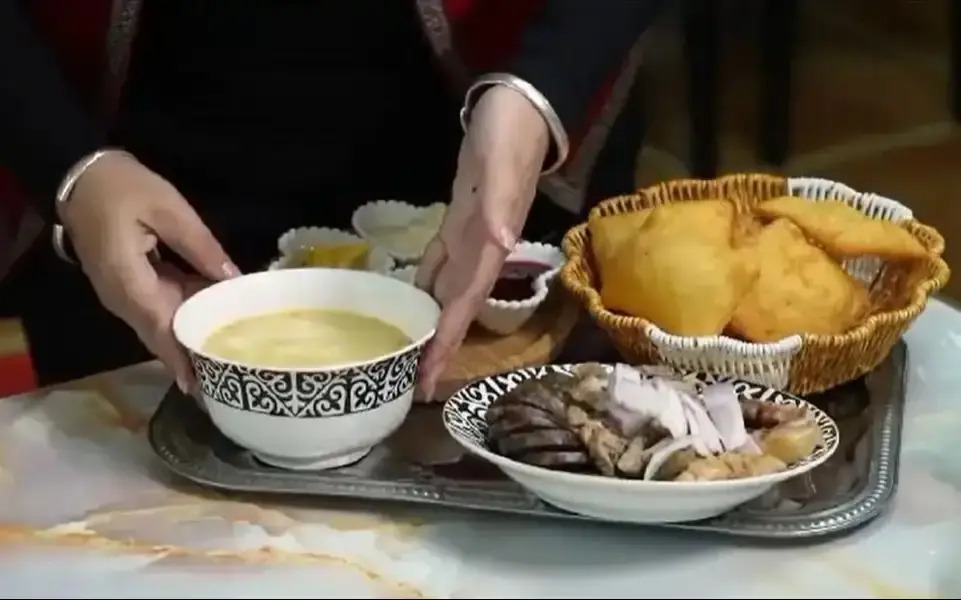ASTANA – Kazakh traditional milk-based tea holds a special place among people in Chinese Xinjiang province, which traditionally has a large population of Kazakhs, according to the video broadcasted on the Central People’s Radio, reported Kazinform news agency.

Kazakh population preserved different kinds of tea recipe. Screenshot from the video.
The one thing that Kazakhs could beat the Chinese at is preparing the perfect tea, or shai, as Kazakhs call it.
The video shows Kazakh tea being served in a teahouse in a Chinese town. According to a waitress, the teahouse is always full of customers from morning to night. Various nationalities frequently stand outside the Kazakh teahouse, and some interested tourists come just to have the Kazakh tea and bauyrsak (puffy fried bread), she said.
“We prepare 2,000 servings of tea a day, using 40-50 liters of milk. We also serve traditional Kazakh food such as bauyrsak, zhent (sweet food made of wheat and dairy), butter and others,” she added.

Kazakh tea and bauyrsak are popular among Chinese. Screenshot from the video.
The local Kazakh population proudly preserves its heritage and traditional way of life. The video proceeds into the exquisitely adorned yurt of entrepreneur Zhenisgul Nurdanakyn, who invited the Chinese correspondent to join her for tea service.
“I specially decorated the yurt, inviting many masters,” said Nurdanakyn as she prepared the Kazakh tea.
She starts with a pinch of salt and fresh milk, followed by a black tea poured over savory leaves of another type.
“Although different nations have something in common in regards to the tea culture, they also have their own individuality,” said Nurdanakyn, listing various types of tea: “kyzyl shai” (red tea), “tas shai” (stone tea), “tary shai” (wheat tea) “un shai” (flour tea), “kalampyr shai” (carnation tea) and others.
“It is also believed that offering tea is a sign of respect. People make treats, especially for those they love. For example, in our modern environment, there are generalized notions of ‘tuystar shaiy’ (tea for relatives), ‘kudalar shaiy’ (tea for parents-in-law) and ‘kelin shaiy’ (tea prepared by a daughter-in-law),” added Nurdanakyn.
The tea ceremony has survived centuries of Chinese history and the many other nations living on its territory. Kazakhs who now reside on the vast steppe cannot resist drinking tea with milk. Drinking tea first thing in the morning has become customary even now that Kazakhs have relocated to urban areas.
“Today, the tea tradition has become a feature of Kazakh culture and traditional hospitality,” said the Chinese correspondent.

